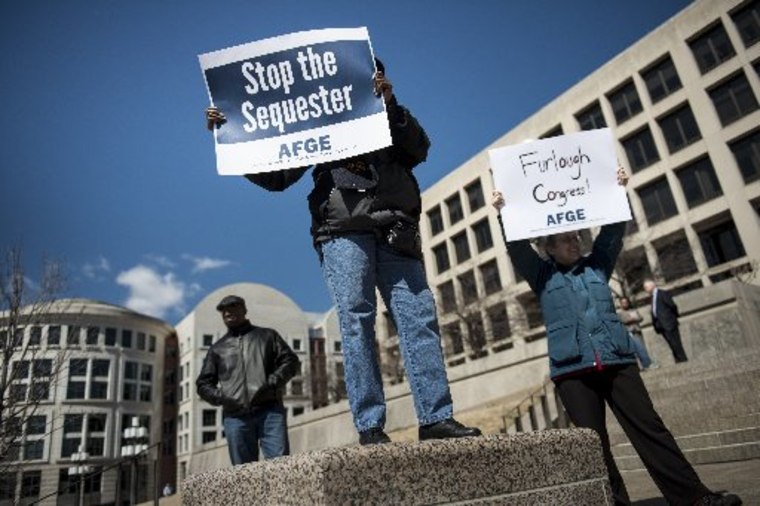It's been four-and-a-half months since sequestration went into effect. But just because lawmakers on Capitol Hill seem to have forgotten about the $85 billion in cuts doesn't mean their effects aren't very real.
As a result of budget cuts, across the country seniors are losing their Meals on Wheels; cancer patients are being denied access to life-saving treatment; the long-term unemployed are being denied benefits; and children are being cut from Head Start programs.
In his latest piece, The Huffington Post's Sam Stein details the impact of some of these cuts, documenting their real-life effect on low-income children and their families:
The policy's designers made a bet in the summer of 2011 that a deficit-reduction cleaver that decimated defense and harmed the most vulnerable would be abhorrent to Republicans and Democrats alike. They lost the bet. Sequestration went into effect on March 1, 2013, after lawmakers failed to agree on a replacement.In Washington, the conventional wisdom has sometimes held that sequestration's harms were oversold. Dire warnings of massive job loss never came true, while government programs used budget gimmickry to keep operating.Outside the Beltway, the perception of sequestration is sharply, viscerally different. Budget cuts have resulted in fewer meals for seniors, less financial aid for scientific research, poorer natural disaster preparedness and more expensive treatments for cancer patients.
Stein takes his reporting to Pratt, Kansas, where 14 children have been dropped from Head Start -- all because Washington decided to take a bet on their future. You can read the whole story in The Huffington Post.
